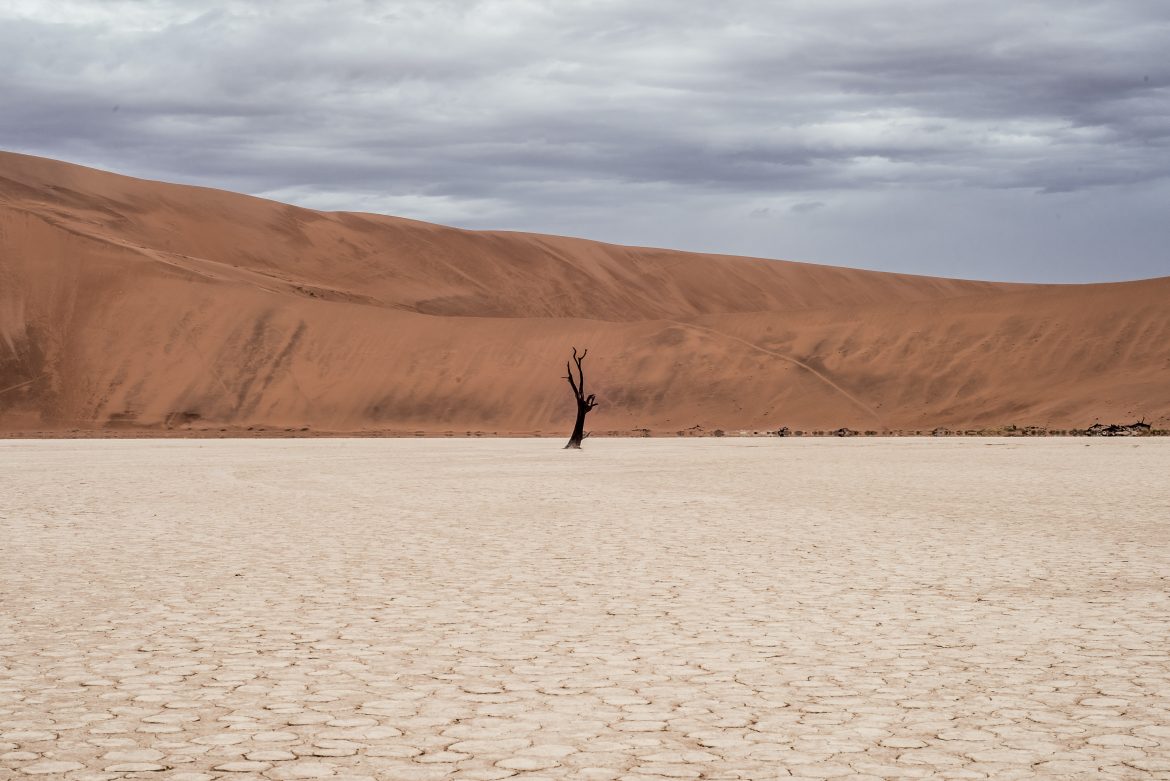(Taken from “Lent Liturgy Full Booklet” from Welcome Table Christian Church, used with permission.)
Read: Genesis 17:1-7,15-16; Romans 4:13-25; Mark 9:2-9
As we consider wandering in a wasteland space, I am consistently drawn to the people of Israel in all their wanderings and all their exiles.
Abram was no one. A wanderer. A wanderer with no heir. Land and line were everything. He had neither. And this is the foundational story for God’s people. In his wandering, I have to imagine he became a wondering wanderer. He is said to be a faithful person. There is something about the wasteland that grows faith within us. There is something about exile that gives us space to dream of a right way of living, if ever we are restored to community.
In Egypt, Abraham’s people were enslaved. Now, there is no archaeological evidence of this. It was likely made up. It is *the* essential story in their faith tradition even though it likely never happened. And all their laws come pouring out of it. You were slaves. You will not be slavers. You can hear that theme over and over again the law and the prophets. The story of slavery in Egypt depicts an empire that is abusive. The law and the prophets again and again call the people to mutual care and a loving and liberating relationship with all. They became wanderers and in that wandering, they became wonderers and dreamed of a right way of living, if ever we are restored to community.
And again, in exile. The people wander. They wonder. They wonder how they ended up where they were and realize it was a lack of right relationship, a lack of a loving and liberating way. So they dream, again, of a right way of living if ever we are restored to community.
And so, I love Hoyt’s description of the blessing of Abraham, above: “The word ‘bless’ means to share one’s power, one’s strength, one’s life with another, to be with the other.” God blesses the wandering and wondering Abraham by being with, by sharing God’s power in order to be in solidarity with the man bereft of land or line. And specifically in this passage, we hear that God blesses Sarah. God becomes with Sarah. God holds her, even in her disbelief, in solidarity. And 20 millennia later, that theme of a blessed bearer of children is echoed as Mary calls forth her sister’s blessing in naming her blessing. “All generations will call me blessed.” All generations will know that God stood in solidarity with Sarah and with Mary.
What is more, we know of Abraham’s blessing that it was a blessing in order to become a blessing. God tells Abraham that all people will be blessed through him. God will stand in universal solidarity with the whole family of creation as God stands in solidarity with Abraham and calls Abraham and all his children and Mary and all her children and Jesus and all his spiritual children to stand in solidarity together. Blessing upon blessing upon blessing.
And then we come to Peter who beholds this blessing and wants to build a monument. To solidify a surreal manifestation of the blessing. But he misses the point. God’s solidarity is not on the top of a mountain. God’s solidarity is not in a monument. God’s solidarity is not in a church building. God’s solidarity is pervasive. When we catch glimpses of it, it is like a little seed of faith that takes root and needs to grow into maturity to become nourishment – to birth that blessing of Divine and human solidarity with the whole family of creation.
Jesus tells Peter, “No.”
And Oscar Romero rightly redirects us to that wandering and wondering. How can Christ be transfigured not in a moment or a monument, but in the whole family of Creation? How can Christ be a blessing to the whole family of Creation? How can we become his hands and feet? How can we stand in solidarity with Creation?
When we see glimpses of God’s glory, they are not invitations to enshrine that moment but to spread it across the face of the earth in our living, in our walking, in our wandering, in our wondering.
It seems important to note, before we move on, that directly following this passage is the place where Peter famously says “Lord, I believe, heal my unbelief.”
The dude literally just saw Jesus transfigured and he’s already lost his belief. You can see why he wanted a monument.
This wandering and wondering, this sacred solidarity, this super-spread blessing to be shared with the whole family of Creation is a daily stumbling. Ibram X Kendi says, in How to be Anti-Racist, that being anti racist, or being racist, is like a name tag. We might put one on one moment. But we could very well put the other one on the next moment. And Peter says, “I believe, heal my unbelief”. And God offers Abraham his solidarity and he decides to reach past God to try and forge a way on his own with Hagar. And Christianity continually forgets to live in blessed solidarity with all people and all the family of Creation.
Lord, we believe, heal our unbelief.
May this wandering and wondering time in the wasteland be a time where we heal our unbelief, and like the people of Israel, we become wanderers and wonderers as we dream of a new way of being when finally we are restored to community.
Note: As an Amazon Affiliate, I earn an amount on qualifying purchases. Thank you for your support for Godspace in this way.

